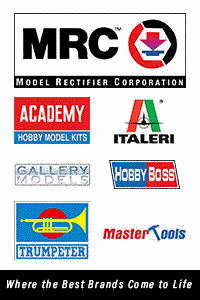
The M38A1 1/4 Ton Truck in Canadian Service Book Review
By Cookie Sewell
| Date of Review | March 2008 | Title | The M38A1 1/4 Ton Truck in Canadian Service |
|---|---|---|---|
| Author | Andrew Iarocci | Publisher | Service Publications |
| Published | 2008 | ISBN | 1-894581-48-6 |
| Format | 24 pages, softbound | MSRP (CDN) | $9.95 |
Review
Follow their recent “Weapons of War” Series boon on “The WWII Jeep in Canadian Service” (ISBN 1-894581-34-9) Service Publications has now presented a new volume on the postwar Jeep vehicles in Canadian service.
After WWII ended, Kaiser Industries took over Willys and then looked to the postwar market for new vehicles. They soon developed postwar variants of the popular and iconic Willys MB which became the CJ2 on the civilian market and M38 in US service, the main difference being the civilian model upgraded to a 12 volt electrical system and the military one to a standard 24 volt system.
Canada too decided the Jeep was a good thing and wanted to procure newer vehicles, but soon decided even with a robust autmotive industry – linked directly to US companies – it made little sense to spend the extra money to purchase self-designed vehicles. As a result, the decision was made to purchase new vehicles from the US (most of which had Canadian-made parts in them anyway) or from the Canadian subsidiaries of the US plants. The main vehicles thus purchased were the Dodge/Fargo 3/4 Ton 4 x 4 M37 , the GMC designed M135 2 ½ Ton 6 x 6, and the Kaiser/Willys M38 and later M38A1 1/4 Ton 4 x 4 Jeeps. While most of the vehicles were actually built in Canada, by using standard military pattern (SMP) US designs more could be procured for less money and, given the high probability of joint operations with US forces, greater commonality of vehicles and support.
The M38 was only in production for a short time before it was replaced on the production lines by the more attractive and less spartan M38A1, and this version remained in Canadian service and production long after the US Army switched over to the Ford designed M151 series. The M38 and M38A1 were built in Canada by Ford of Canada in Windsor, Ontario, with the latter basically produced in three major lots, referrdd to as : M38A1 CDN, 1952-1953; M38A1 CDN2, 1967-1968; and M38A1 CDN3, 1970-71; the latter batch were Toledo-built, as were an interim group of CJ7 Jeeps provided between 1982-1985.
The M38A1 series of Jeeps had minor differences, with the only major difference being that the M38A1 CDN models were delivered without heaters. (Something that does not jibe for me is Canada - Jeep - no heater - snow but then again I only ever had one M151 series jeep with heater!) The M38A1 also introduced what became a standard fitting in all subsequent tactical vehicles – a sturdy grab bar for the passenger which the Canadians dubbed the “Chicken Bar” (we called them “Jesus Bars” as it was likely the first comment one would make when grabbing it for dear life.)
Critics at the time argued whether the new design was better or not, but it was based on functionality and the longetivity of the vehicle’s service and popularity would seem to be on the side of the designers and not the critics. More powerful than WWII models and blessed with stronger components, the mileage was less as with all designs of the 1950s – bigger engine, more power, lower mileage. Reliability of components, mostly seals, also caused problems which led the US Army to begin replacement after only six years of service.
The book covers some of the Canadian modifications to the little vehicle and accessories such as the M110 CDN trailer (the WWII Bantam-style trailer in its postwar guise) and the 106mm RR version; the author does not indicate if the Canadians bought the M38A1C version or simply made their own.
Some comments on painting and finishing are also included, and most useful for modelers, Service Publications is now including 1/35 scale plans and scrap views in the center of each book. Kudos to them for taking modelers into consideration.
It should be noted that AFV Club is offering the ex-Skybow M38A1 and M38A1C kits, and some after-market sets of markings for Canadian UN service vehicles are available from companies like Archer Fine Transfers.
Overall this is another nice little volume from Service and gives another view of a popular subject.
Thanks to Service Publications for the review copy.







